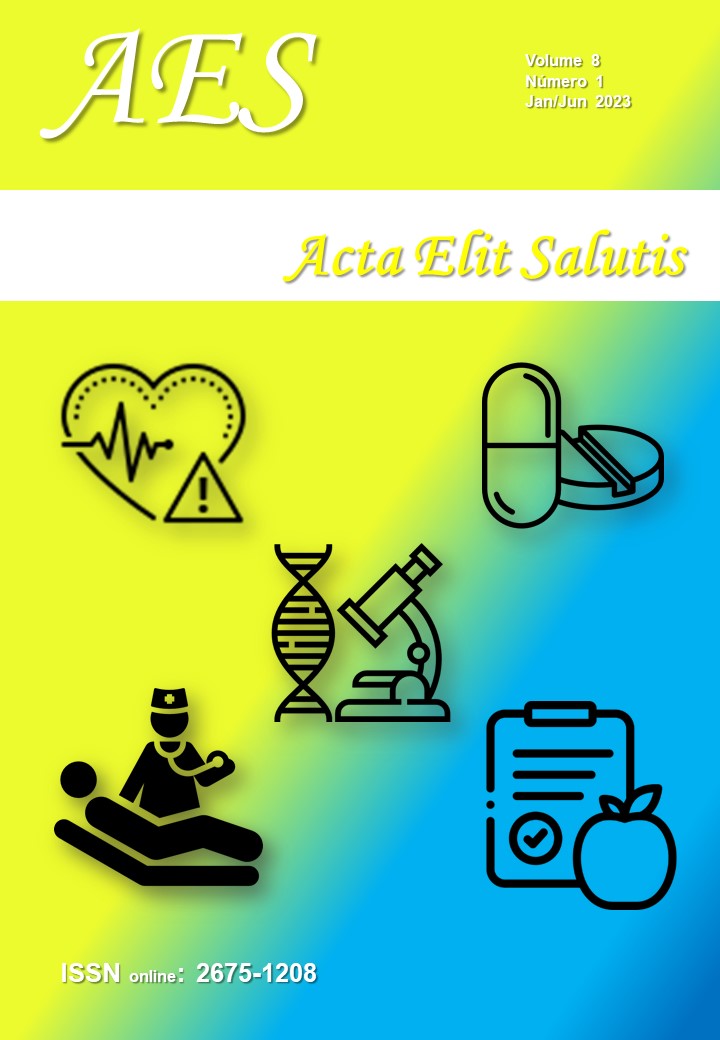Analysis of the prevalence of venous thrombosis, Khorana score and survival in patients with pancreatic cancer at the Cascavel’s Cancer Hospital
DOI:
https://doi.org/10.48075/aes.v8i1.30173Keywords:
thromboembolism, pancreatic cancer, risk scoreAbstract
Episodes of venous thromboembolism (VTE) are a frequent complication in cancer patients, being even more frequent in cases of pancreatic neoplasia, having a great impact on the morbidity of these patients. Within this context, the Khorana score is a tool that stratifies the risk of cancer patients to have VTE. In this study, we aimed to assess the prevalence of VTE in patients followed up with pancreatic cancer at the Hospital of cancer from Cascavel-PR, in addition to correlating the Khorana score and overall survival, as well to identifying whether the score was able to predict patients with episodes of thromboembolism. As a result, within a cohort of 111 patients, 16 (14.41%) had episodes of VTE. In addition, the median survival of the population studied was 4 months, and the main variables related to survival were: sex, presence of metastases, QT intention and KPS. Regarding the Khorana score, it was unable to predict patients who would have episodes of VTE, in addition to its variables not being related to survival and mortality. Therefore, the importance of new studies that seek to validate the Khorana score or the search for other tools capable of predicting VTE episodes is highlighted.
Downloads
Published
How to Cite
Issue
Section
License
Copyright (c) 2023 Acta Elit Salutis

This work is licensed under a Creative Commons Attribution-NonCommercial-ShareAlike 4.0 International License.
Aviso de Direito Autoral Creative Commons
Política para Periódicos de Acesso Livre
Autores que publicam nesta revista concordam com os seguintes termos:
1. Autores mantém os direitos autorais e concedem à revista o direito de primeira publicação, com o trabalho simultaneamente licenciado sob a Licença Creative Commons Attribution que permite o compartilhamento do trabalho com reconhecimento da autoria e publicação inicial nesta revista.2. Autores têm autorização para assumir contratos adicionais separadamente, para distribuição não-exclusiva da versão do trabalho publicada nesta revista (ex.: publicar em repositório institucional ou como capítulo de livro), com reconhecimento de autoria e publicação inicial nesta revista.
3. Autores têm permissão e são estimulados a publicar e distribuir seu trabalho online (ex.: em repositórios institucionais ou na sua página pessoal) a qualquer ponto antes ou durante o processo editorial, já que isso pode gerar alterações produtivas, bem como aumentar o impacto e a citação do trabalho publicado (Veja O Efeito do Acesso Livre).
Licença Creative Commons
Esta obra está licenciada com uma Licença Creative Commons Atribuição-NãoComercial-CompartilhaIgual 4.0 Internacional, o que permite compartilhar, copiar, distribuir, exibir, reproduzir, a totalidade ou partes desde que não tenha objetivo comercial e sejam citados os autores e a fonte.





